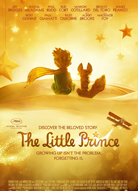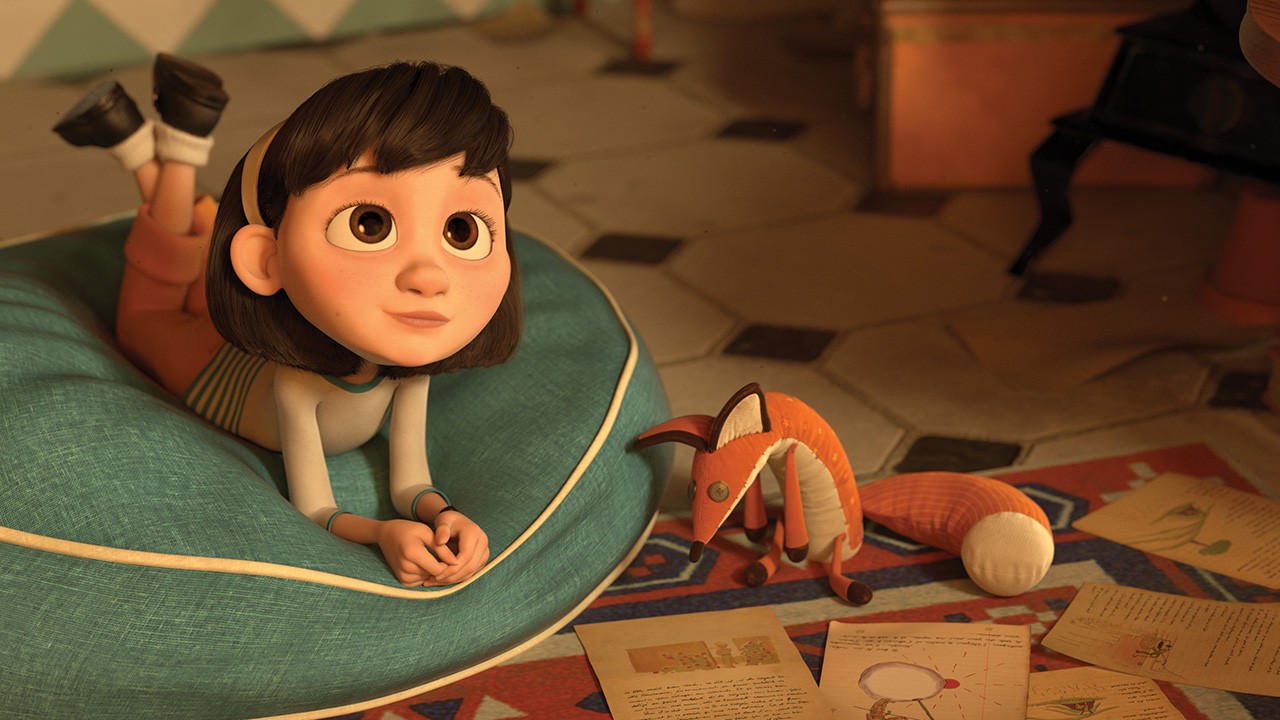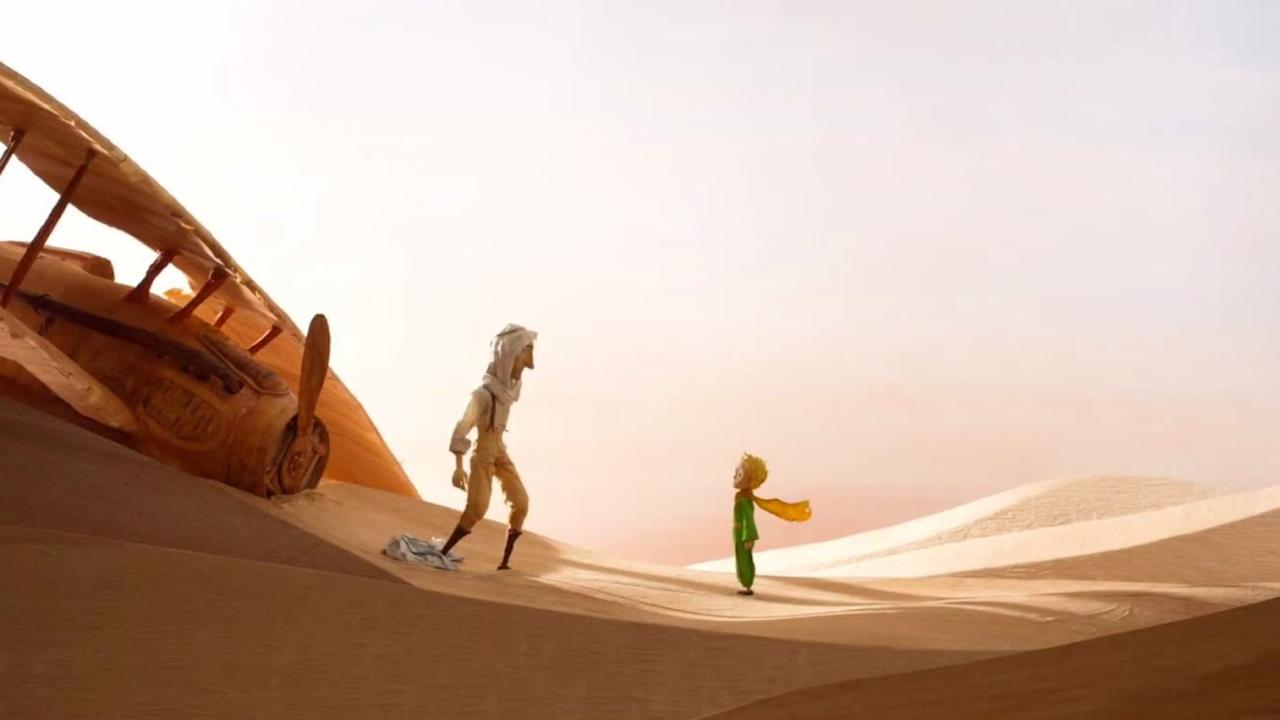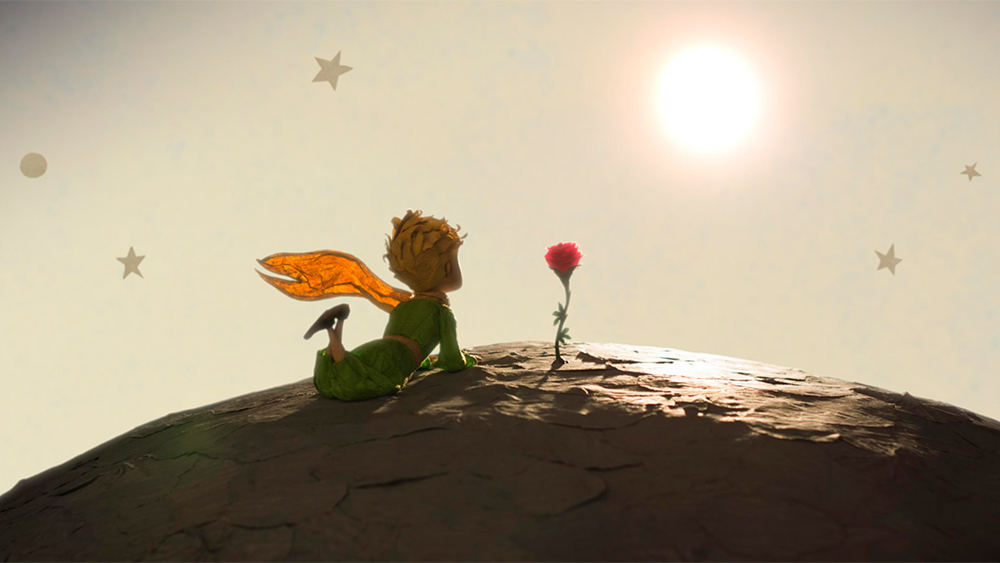 Tim here. It's the end of a long, baffling journey to American audiences for The Little Prince, an English-language French-made animated feature that has been waiting since the 2015 Cannes Film Festival for this moment. A substantial hit in most of the markets where it opened across 2015, the film was scheduled for release in the United States on March 18, 2016, but for reasons still unknown, distributor Paramount got cold feet at the very last minute, and cancelled the release entirely on March 11. A few days later, Netflix rode to the movie's rescue, and now the film has finally started streaming (alongside a perfunctory New York/Los Angeles release to qualify it for awards consideration).
Tim here. It's the end of a long, baffling journey to American audiences for The Little Prince, an English-language French-made animated feature that has been waiting since the 2015 Cannes Film Festival for this moment. A substantial hit in most of the markets where it opened across 2015, the film was scheduled for release in the United States on March 18, 2016, but for reasons still unknown, distributor Paramount got cold feet at the very last minute, and cancelled the release entirely on March 11. A few days later, Netflix rode to the movie's rescue, and now the film has finally started streaming (alongside a perfunctory New York/Los Angeles release to qualify it for awards consideration).
To say that it's been worth the effort is wildly insufficient: The Little Prince turns out to be a wonderfully beguiling, visually inventive animated feature that easily ranks among the year's best...
Given the Academy’s anti-Netflix bias, I can't imagine the film actually secure a Best Animated Feature Oscar nomination, though I can easily imagine it being better than all five movies that do. It admirably pays tribute to the philosophical playfulness and melancholy of Antoine de Saint-Exupéry's legendary children's-book-that's-secretly-for-adults which forms its base and provides the title, though I'm not sure we can actually call it an "adaptation".

It's more of a tribute to the experience of reading the book and attempting to grapple with its solemn message than it is a straight narrative retelling, which proves to be a very successful way of handling the material. At any rate, it's an obvious labor of love for director Mark Osborne, whose great affection for the book and desire to share it underpins everything that happens in the movie.
Taking place in what I suppose is suburban France (almost all of the writing we see is in French, anyway), The Little Prince centers on a little girl (Mackenzie Foy) who has been studying with indescribably intensity to get into a highly prestigious private school. To further this end, her mother (Rachel McAdams) has organized summer into a joy-free zone of constant, regimented work. All of this is complicated by the old aviator (Jeff Bridges) who lives next door to the house the mother and daughter have just purchased; he takes a much freer, more imagination-focused idea of childhood, and when he accidentally ends up involved in the little girl's life, he starts to tell her a story of another young person he has known. This was a little prince (Riley Osborne) who traveled from a small asteroid to the Sahara, where he met the aviator, and, well, the rest is one of the bestselling books of the 20th Century.

Sight unseen, the addition of a framework narrative seemed like a surefire mistake; it has, on the contrary, turned into an enormous success. Screenwriters Irena Brignull and Bob Persichetti have infused their original material with a perfect modern-day interpretation of Saint-Exupéry's musings about the gap between adult sense and childhood creativity, turning the film into a gentle but unyielding satire on the modern tendency towards micro-managed childhood schedules and the belief that the purpose of an education is to become a productive member of a capitalist society, rather than to learn for the pure joy of learning. This is all achieved with a keen sense of humor rather than a clucking sense of disapproval: Osborne, has an excellent sense of comic timing in animation, and The Little Prince is full of carefully-chosen camera angles (including several unexpected and clever birds-eye view shots) and slightly delayed character reactions to let the film's jokes bubble up organically rather than fling them at us like he's firing a gag cannon (as in, for example, the same director's Kung Fu Panda; a terrifically funny film, but not so warm and knowing in its comedy).
The film that results from this has its cake and eats it: it's a contemporary-style CGI feature that has the stately pacing and sincere sensibility of a much more delicately handicrafted piece of animated art. Which, for the record, it also is: the interludes dedicated to the original book bring it to life in the form of almost indescribably beautiful paper animation, with characters molded from paper clay. It's an inventive way of putting us inside the pages of the book, and it provides an important contrast between the slick, glossy CGI textures (which are, at times, not great: the aviator in particular feels made of plastic, not flesh, especially his eerily unmoving beard) and the more idiosyncratic book sequences, which are thus both aesthetically and stylistically set apart from the hyper-modern culture that the film opposes to steadfastly.
Besides, they're extraordinarily beautiful: if The Little Prince had nothing to offer but the effect of translucent colored paper aglow from backlighting, that would be quite sufficient for me to declare it a great animated movie.

It even makes its not-too-expensive CGI look beautiful, stylizing it just enough that it feels usefully unreal - the glowering, corpselike school board deciding the little girl's fate at the beginning of the movie, for example, or the rigid boxes and ninety-degree objects that dominate the anonymous suburb where the little girl is to learn all about how to be a productive, generic member of society.
There are a few missteps along the way, including a lengthy stretch in the second half where the film tries to essentially write a sequel to the original book, and turns a bit too much into a generic kids action movie, though it manages to recover in the final scenes. And besides, even this rather unlikable part of the movie boasts some amazing dark fantasy design concepts, recalling Osborne's great Oscar-nominated short More. Beyond that, I can't think of any place the film puts it foot wrong: besides the pleasant humor and intelligent use of the medium, it boasts likable, distinctive characters (even with their absence of proper names). It's perhaps too overinvested in the "in my day..." attitude towards childhood play for all tastes, but it's nonetheless a handsome and sweet tribute to childhood imagination that deserves far more than direct-to-streaming purgatory.
The first half: A
The whole thing: B+